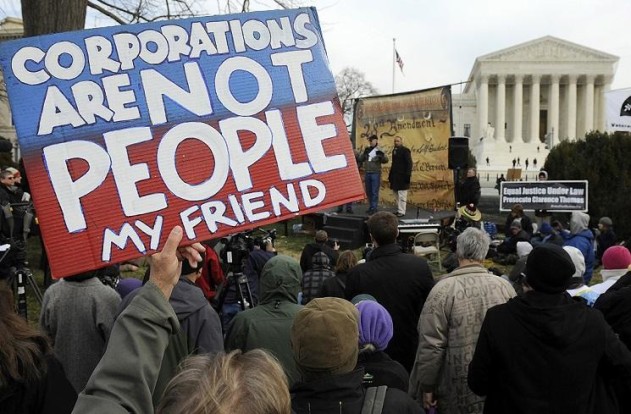Today’s decision is wrong factually, legally, and practically, says Kate McGuinness.
By a vote of 5 to 4, the U.S. Supreme Court’s Hobby Lobby decision struck a blow against women’s health and reproductive freedom. The conservative majority of the court ruled that the Affordable Care Act’s requirement that employer-provided health insurance include contraceptive care for women violates the religious freedom of “family held” corporations. Religious non-profits corporations are already exempt from this requirement.
The decision is wrong factually, legally, and practically.
First, the factual errors. Hobby Lobby operates approximately 600 craft stores nationwide and employs more than 20,000 workers. It is controlled by one family, which claims it is trying to operate its business on religious principles. The corporation had asserted that offering insurance that provided certain contraceptives violated its religious liberty. The company did not object to all contraception but only those forms that prevent pregnancy after fertilization such as intrauterine devices, which it characterized as tantamount to abortion. That scientifically untrue characterization led Hobby Lobby to battle the ACA requirement.
Second, the legal errors. The decision dramatically expands the notion of corporations as persons. The Roberts Court started down this slippery slope with its Citizens United decision on corporate political spending. However, that decision focused on whether spending money was speech protected under the First Amendment. Indeed, one Citizens United opinion explicitly stated that corporations “have no consciences, no beliefs, no feelings, no thoughts, no desires.”
But the Hobby Lobby decision establishes that corporations indeed have religious beliefs deserving of protection. Although the majority opinion limits its holding to “closely held” corporations, it “invites for-profit entities to seek religion-based exemptions from regulations they deem offensive to their faiths,” as noted by Justice Ginsburg in her stinging dissent.
Hobby Lobby is a dangerous legal precedent. In the future, companies could assert their religious beliefs were violated by legal requirements to provide services to gay customers or to provide health insurance to the multi-racial child of an employee or other requirements found offensive under one religious tenet or another.
Third, the practical errors. If the desire of the Hobby Lobby owners was to prevent abortion, their victory will in all likelihood have the opposite effect. The Guttmacher Institute, a reproductive rights research and policy group, has noted that denying contraceptive coverage means many women will not be able to afford the most effective methods of contraception. As a result, unintended pregnancies and abortions will increase.
Access to effective contraception is essential for any woman to live freely. As Margaret Sanger wrote, “No woman can call herself free until she can choose consciously whether she will or will not be a mother.”
Kate McGuinness is a lawyer who spent 17 years at Big Law before becoming the general counsel of a Fortune 500 corporation. She is a now a certified executive and transition coach at Counselor Coaching. She is an advocate for women and tweets as @K8McGuinness.
Related Links:

